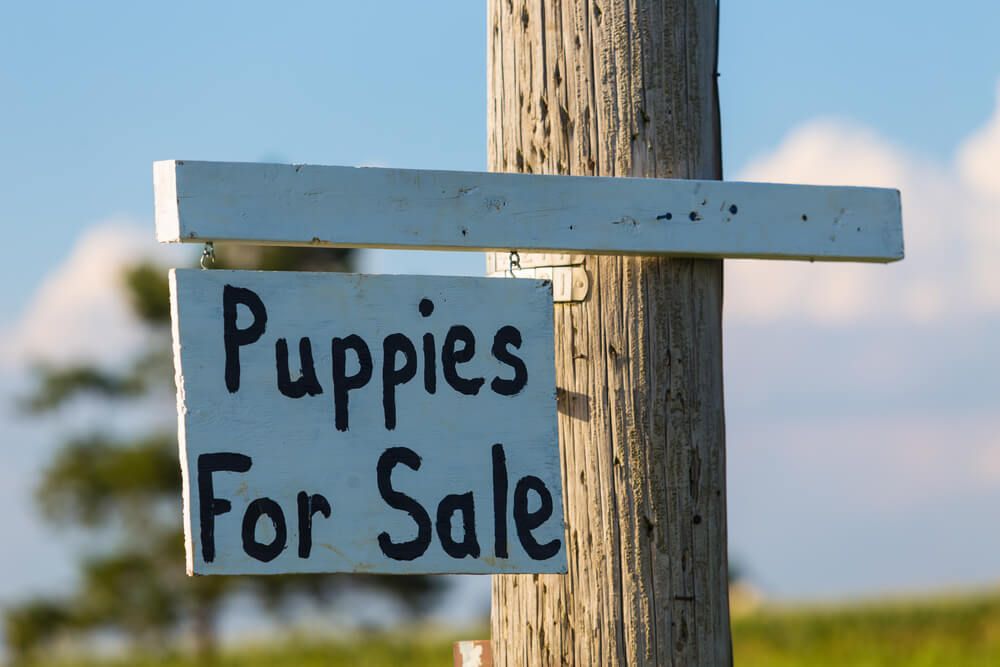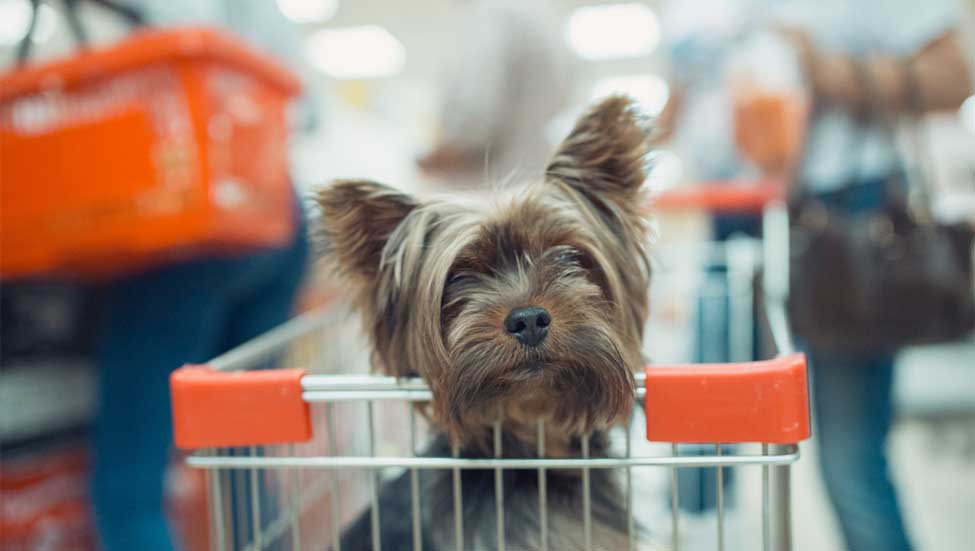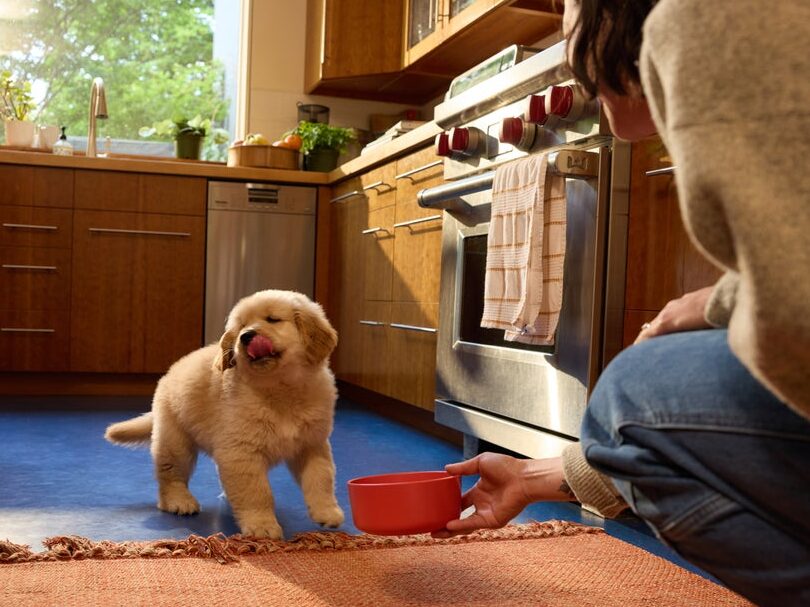Hey Ollie blog readers! We’re offering you an exclusive 60% OFF your starter box! Try now!
When you’re looking to welcome a new best friend the last thing you want is to get scammed out of your hard earned money or bring home a puppy who is sick. If shopping safely and ethically is your priority, we’ve rounded up some easy tips to help you get started.
Behind the cute faces on many websites are big business who aren’t always concerned about the health and welfare of the dogs in their care or protecting you, as an aspiring pet parent.
Being aware of common scams can help, but it’s also important to follow some guidelines and be on the lookout for red flags to make sure that you don’t get misled (or ripped off)!

Start by giving the breeder or rescue’s website a spelling and grammar check
We know this one might sound a little silly, but stay with us. Many online puppy scam websites are built offshore and the developers may not be fluent in English. So you’re not really looking for a typo here and there – but signs that the website or any advertisements are fake. You can also do a reverse google image search to see if the wesbite or ad has been copied from another source. While some people do use and customize templates from sites like Canva, and that might be just fine, you’re looking for something that was blatently plagerized.
Interview the breeder or rescue thouroughly
Don’t be afraid to ask a lot of questions! Whether you suspect it’s a scam or not, make sure you ask plenty of relevant, detailed questions.
You can ask about their history and how long they’ve been breeding dogs or operating their rescue.

If you are buying from a breeder ask if they belong to the official breed club for their breed. Many of the breed clubs require members to sign a code of ethics or a responsible breeding pledge as these groups are passionate about advancing the breeds standards and advocating for the health of dogs.
You should ask about the parents medical history, check to see what medical testing is recommended for the breed you’re purchasing and ask if it has been done. The breeder should have certificates for this. Information about recommended testing should be easy to find on the breed club’s website and while you’re there – checking to make sure your breeder is an active member is a good idea too. You can never be too sure.
You may also want to ask how many litters the mom has had and if you’re able to speak to others who have purchased puppies from this breeder. Other great questions to ask might be about socialization and any early training the breeder is doing.
If the breeder has only provided a few pictures of your prospective puppy, it’s okay to ask for more as well as video. You may even want to ask for periodic updates until you’re allowed to pick up the puppy and bring them home. If the breeder is struggling to comply, it may be because they’re busy caring for young puppies but they should be able to provide you some updates along the way.
Shelters or rescues may not know as much about the dog’s history especially if you’re looking at a dog who was found as a stray or surrendered by their owners. A good rescue will give you as much detail as possible as well as share with you behavioral and personality observations from the staff and volunteers. If you’re adopting a dog that is currently in a foster home, the foster may also be a wealth of information.
Ask about the return policy
A reputable breedor or shelter should have you sign a contract stating that should you ever not be able to care for your dog anymore you contact them and return the dog. This policy is a great sign of a breeder or rescue who cares deeply about the dogs and placing them in good homes for their entire lives.
Some puppies may also come with a health guarantee. This means they are guaranteeing that the puppy was healthy when placed in your care. In order to not void this guarantee, you may be required to have the dog examined by a veteranarian within a set time period. If your puppy comes with this guarantee, make sure to read the fine print and any agreement you’re signing very carefully.
If you’re not asked to sign any kind of agreement at purchase or adoption, this is also something to be wary of. A responsible, ethical breeder or rescue will have a detailed agreement for you to sign. This document may also state that you cannot breed your dog, must have them spayed or neutered etc.
Always buy or adopt in person
Even if you have done extensive research online, you should still pick up the puppy and pay in person. This does not necessarily count for putting down a refundable deposit on a puppy, but if you can tour the breeding facility or meet the breeder when you make your deposit, that’s a sign of a responsible and ethical breeder.
When picking up your pup, offer to fly out to the breeder or rescue’s location if they’re not located near you. If the seller cannot accommodate this request, it’s one sign of a possible scam or a puppy mill that the seller does not want you to see. While there are some reputable breeders who do ship or transport puppies, being actively discouraged from visiting your puppy’s birthplace is not a good sign.
Most reputable shelters and rescues will have a strict process for potential adopters. That can include checking IDs, references, letters from a landlord confirming pets can live in your apartment or house if you rent. You may be required to allow someone from the rescue to visit your home, and if you currently have pets, they may be required to do a meet with the pet you’re looking to adopt to ensure that they will be able to eventually coexist peacefully.
If the seller or rescue doesn’t ask any questions about you, your family, your lifestyle or your home and seems to only care about the cash, this is another red flag that something is not quite right. Ethical breeders and rescues should care deeply about ensuring they’re placing puppies into good homes. Bottom line, if you have a bad feeling don’t move forward without doing further due dilligence.
Never Wire Money
Pay with a money order or ideally cash (or check) in person. Wired money cannot be refunded, and you cannot report it as a scam with money wiring services. If the seller agrees to meet with you but requests money first, do not comply.
Avoid buying from a puppy mill
Puppy mills are like farms for puppies. Breeding dogs are bred over and over to produce as many puppies as possible as quickly as possible. In these facilities the parents are generally kept in small cages and not given adequate exercise, socialization and even medical care.
The people who run these businesses are using adorable puppies to make a quick buck. They are not concerned with breed standards or the health of their dogs.
Puppy mills are more common than you might think. The US Humane Society says there are likely well over 10,000 of these facilities in the United States. Many of these puppies are sold through online brokers, pet stores and even websites designed to deceive consumers. The puppies are generally very expensive and come with claims of pure breeding, and even sometimes AKC papers.
Doing your due dilligence will help you avoid falling victim to these scammers. When in doubt ask around. Getting a recommendation from someone who has the dog breed you want or who has had a great experience with a rescue can help you find a responsible, ethical breeder or the right rescue dog.
The Ollie blog is devoted to helping pet parents lead healthier lives with their pups. If you want to learn more about our fresh, human-grade food, check out Ollie.com.
Tagged As:

The nutrition your dog needs,
the food they want.

Enjoying our articles? Subscribe our Newsletters and get new articles directly to your inbox
You might also like
13 May 2025
8 MINS READ
Puppy Training Guide & Behavior Timeline
Bringing home a puppy is pure magic. It’s also pure chaos—tiny teeth, zoomies, accidents in the house, and moments that make you wonder if you’re raising a future genius or a tiny tornado. …
by Ollie Pets
10 May 2025
12 MINS READ
New Puppy Checklist: Guide To Prepare For A New Dog
Bringing home a new puppy? This checklist covers everything new dog owners need—from essential supplies to training, feeding, and first vet visits.
by Ollie Pets
3 April 2025
9 MINS READ
Home Remedies for Fleas on Dogs: 10 Natural Ways That Actually Work
Wondering what kills fleas on dogs instantly and naturally? If your pup is scratching like crazy, it may be time to take action. In this guide, we’ll show you the most effective home remedies for…







